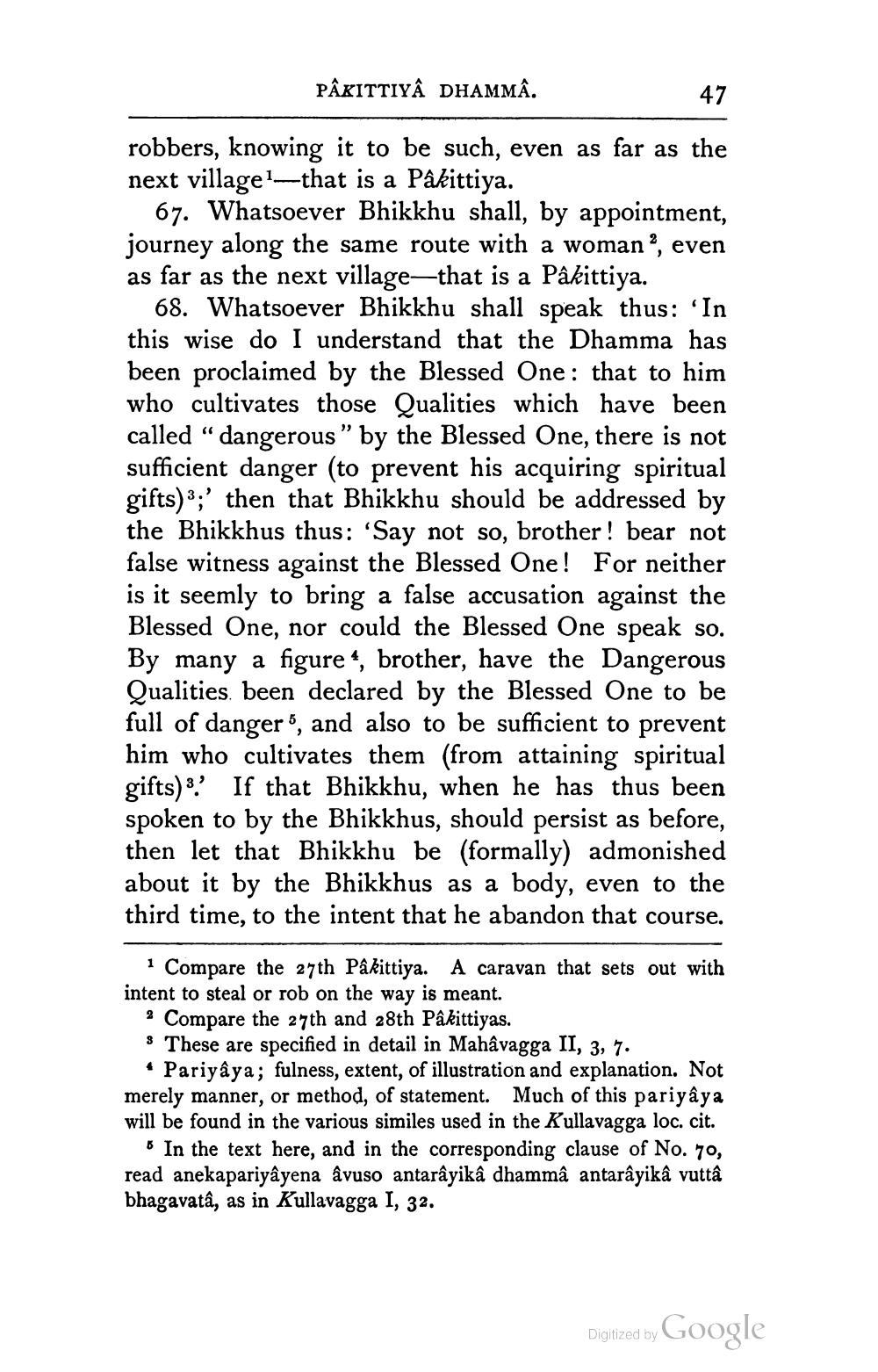________________
PÂKITTIYÂ DHAMMÂ.
47
robbers, knowing it to be such, even as far as the next village that is a Pâkittiya.
67. Whatsoever Bhikkhu shall, by appointment, journey along the same route with a woman”, even as far as the next village—that is a Pâkittiya.
68. Whatsoever Bhikkhu shall speak thus: 'In this wise do I understand that the Dhamma has been proclaimed by the Blessed One: that to him who cultivates those Qualities which have been called " dangerous” by the Blessed One, there is not sufficient danger (to prevent his acquiring spiritual gifts)3;' then that Bhikkhu should be addressed by the Bhikkhus thus: “Say not so, brother! bear not false witness against the Blessed One! For neither is it seemly to bring a false accusation against the Blessed One, nor could the Blessed One speak so. By many a figure 4, brother, have the Dangerous Qualities been declared by the Blessed One to be full of dangers, and also to be sufficient to prevent him who cultivates them (from attaining spiritual gifts) 3. If that Bhikkhu, when he has thus been spoken to by the Bhikkhus, should persist as before, then let that Bhikkhu be (formally) admonished about it by the Bhikkhus as a body, even to the third time, to the intent that he abandon that course.
1 Compare the 27th Pâkittiya. A caravan that sets out with intent to steal or rob on the way is meant.
2 Compare the 27th and 28th Pakittiyas. 8 These are specified in detail in Mahavagga II, 3, 7.
• Pariyâya; fulness, extent, of illustration and explanation. Not merely manner, or method, of statement. Much of this pariyâya will be found in the various similes used in the Kullavagga loc. cit.
In the text here, and in the corresponding clause of No. 70, read anekapariyâyena avuso antarâyika dhamma antarayikâ vutta bhagavata, as in Kullavagga I, 32.
Digitized by Google




